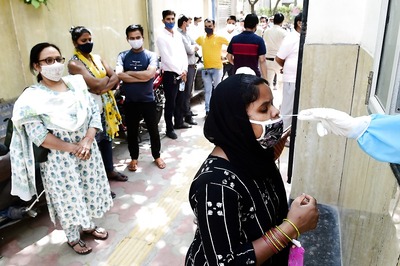
views
Type 2 diabetes is the most common type of diabetes, which has affected millions globally. The condition is associated with other severe complications that can take a toll on your overall health. Preventing the onset of diabetes involves exercising regularly, eating a healthy diet, and ditching bad habits. But did you know that your partner can also be helpful in preventing diabetes? A new study suggests that married people or the ones who live with their partners may have a lower risk of developing type 2 diabetes.
The study, conducted by researchers from the University of Luxembourg and the University of Ottawa, Canada, shows that marriage can help lower blood sugar levels regardless of your relations with the partner.
Previously, studies have found links between the risk of type 2 diabetes and social isolation, loneliness, and the size of one’s social network.
The team of researchers aimed to know if glycemic levels had an association with marital status and marital quality. They used biomarker information from the English Longitudinal Study of Ageing (ELSA), a population-based sample of people over 50 and their partners which provides data every two years.
To measure the HbA1c (average glycemic or blood glucose) levels, participants, between the age of 50 and 89 years, underwent blood tests. The respondents were asked if they lived with a husband, wife, or partner or if their relationship was cordial or strained.
The findings revealed that individuals who underwent marital transitions (such as divorce) also witnessed significant changes in their HbA1c levels and pre-diabetes probabilities. The average blood glucose levels were not significantly affected by the nature of the relationship, indicating that having a good or bad relationship did not matter much as compared to just being in a relationship.
The researchers said, “Overall, our results suggested that marital/cohabitating relationships were inversely related to HbA1c levels regardless of dimensions of spousal support or strain. Likewise, these relationships appeared to have a protective effect against HbA1c levels above the pre-diabetes threshold.”
They also highlighted that adults who do not have pre-existing diabetes and are going through a marriage transition can be at a greater risk of worsening glycemic levels.
The study has been published in the journal BMJ Open Diabetes Research & Care.
Read all the Latest Lifestyle News here



















Comments
0 comment